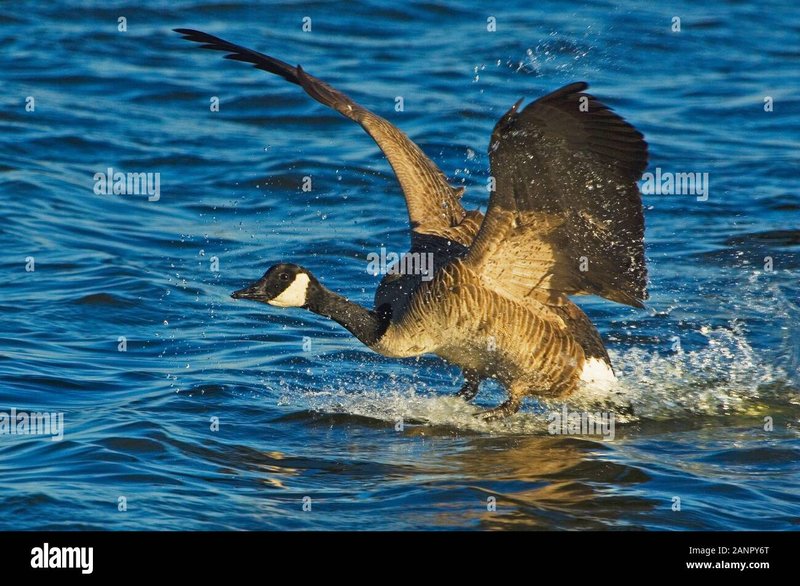
Geese are fascinating animals. They can be as protective as a mother bear when it comes to their young. Whether it’s a casual jogger passing by or a family picnic near their nest, these birds are ready to defend their territory. But don’t let their aggression fool you—they also play important roles in their habitats. So, what’s the deal with geese and their so-called ‘bad attitude’? Let’s break it down.
Understanding Goose Behavior
When thinking about geese, it’s easy to picture them honking and waddling around, but there’s way more to their behavior. At their core, geese are social animals. They live in groups and often form strong family bonds. Their social structure is much like ours, where they look out for each other, especially when they feel threatened.
Honestly, if you think about it, it’s not much different from how we protect our loved ones. Imagine a parent seeing their child in danger; their instinct is to jump into action, right? Geese operate on that same instinct. They’re wired to defend their nests and goslings, and that’s why they can seem aggressive. It’s all about survival.
Furthermore, these birds are territorial. When spring rolls around, they get extra protective. That’s when they start nesting and raising their young. If you happen to get too close, you might find yourself facing a honking, flapping, and yes, aggressive goose. Here’s the thing: they really don’t want to attack you; they just want to keep their little ones safe.
Why Do Geese Get Aggressive?
So, what triggers their aggressive behavior? Understanding this can really help us avoid unwanted encounters. Geese can be provoked by various factors that make them feel threatened. For starters, proximity matters. If you get too close to their nest, they see you as a direct threat. This is especially true during nesting season.
Another factor is body language. You might think geese are just waddling around, but if you pay close attention, you’ll notice subtle cues. Puffing out their chests, spreading their wings, and honking loudly are all signs that they’re ready to defend themselves. It’s their version of saying, “Hey, back off!”
Lastly, food can play a role in making geese aggressive. If they associate humans with handouts, they might feel more comfortable approaching. But if you don’t have food, they could get curious and a bit pushy in their search for a snack. Just like a child who sees a candy jar, they may not understand personal space when they think they’re about to get a treat!
Common Situations When Geese Are Aggressive
You might be wondering, when can you expect geese to show their aggressive side? There are a few common scenarios where their behavior can take a turn for the worse. Here’s a closer look:
- During Nesting Season: This is the most crucial time for geese. From March to June, they’re busy raising their young. If you see a goose hissing or chasing you, you’re likely too close to its nest.
- When They Feel Cornered: If a goose feels trapped, it can become aggressive. This happens a lot in public parks where people try to get close for a photo. It’s a recipe for a panic response.
- If Their Goslings Are Present: Goslings are the young ones, and when parents are around their babies, they become particularly fierce protectors. This is similar to how we can act if we sense someone is threatening our kids.
By recognizing these situations, you can better navigate encounters with geese. Remember to keep your distance, and you’ll likely have a peaceful experience.
How to Handle Aggressive Geese Safely
If you ever find yourself in a face-off with an aggressive goose, it’s important to know how to respond. Here are some effective tips:
- Stay Calm: First off, don’t panic! Sudden movements can make the goose more anxious. Take deep breaths and try to stay still.
- Back Away Slowly: If you notice a goose getting aggressive, back away slowly. This shows them you’re not a threat, and it gives them space.
- Don’t Feed Them: It might be tempting to try and appease an aggressive goose with food, but this can backfire. Feeding them can encourage more aggressive behavior in the future.
By following these guidelines, you can avoid confrontations and keep those geese—and yourself—safe.
The Importance of Geese in Ecosystems
Despite their sometimes aggressive nature, geese play a vital role in our ecosystems. They help maintain the health of wetlands and grassy areas by grazing on plants and spreading seeds. This grazing can actually promote biodiversity by encouraging a variety of plant growth.
Additionally, geese are part of the food chain. They provide sustenance for various predators, including foxes and hawks. Every creature, even the aggressive ones, has a purpose in maintaining balance in nature.
Understanding the role of geese in our ecosystems can help us appreciate them more, aggressive behavior and all. They’re not just annoying birds; they’re integral to the environment we cherish.
Are All Geese Aggressive?
It’s a common misconception that all geese are aggressive. While many can show a defensive side, not every goose you encounter will be ready to chase you down. It often depends on the species, the situation, and individual temperament. Some geese, especially those that grow accustomed to human presence, can be quite docile.
For example, Canada geese are well-known for their protective nature, but domesticated breeds like the Embden or Toulouse geese might be more friendly, particularly if they’ve been raised around people. This goes to show that, much like humans, not all geese share the same personality traits.
So, next time you see a goose, take a moment to observe before jumping to conclusions about its behavior.
Final Thoughts on Goose Behavior
Understanding if geese are aggressive is all about perspective. Their behavior stems from instincts rooted in protection and survival. They may seem unfriendly, especially during nesting season, but it’s essential to respect their boundaries.
Next time you encounter geese, remember the importance of keeping your distance and watching for their signals. By doing so, you’ll enjoy the beauty of these animals without unnecessary drama. So, whether you’re at the park or strolling by the water, appreciate their presence from a safe distance, and you’ll likely have a peaceful experience.
Geese might seem overly aggressive at times, but it’s just their way of protecting what they love. They deserve respect, just like any other creature sharing our world.

